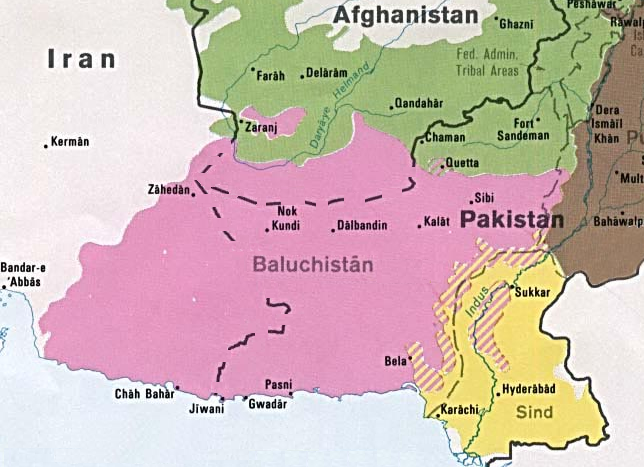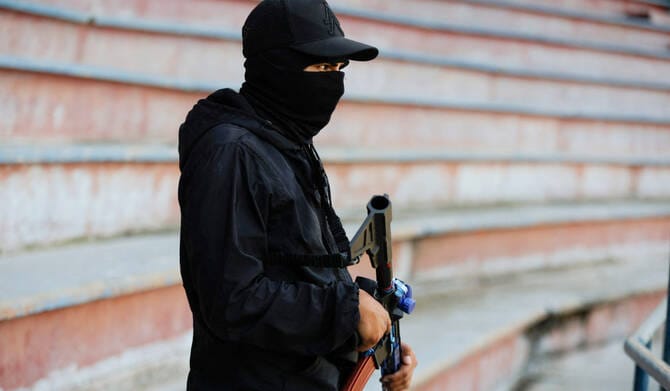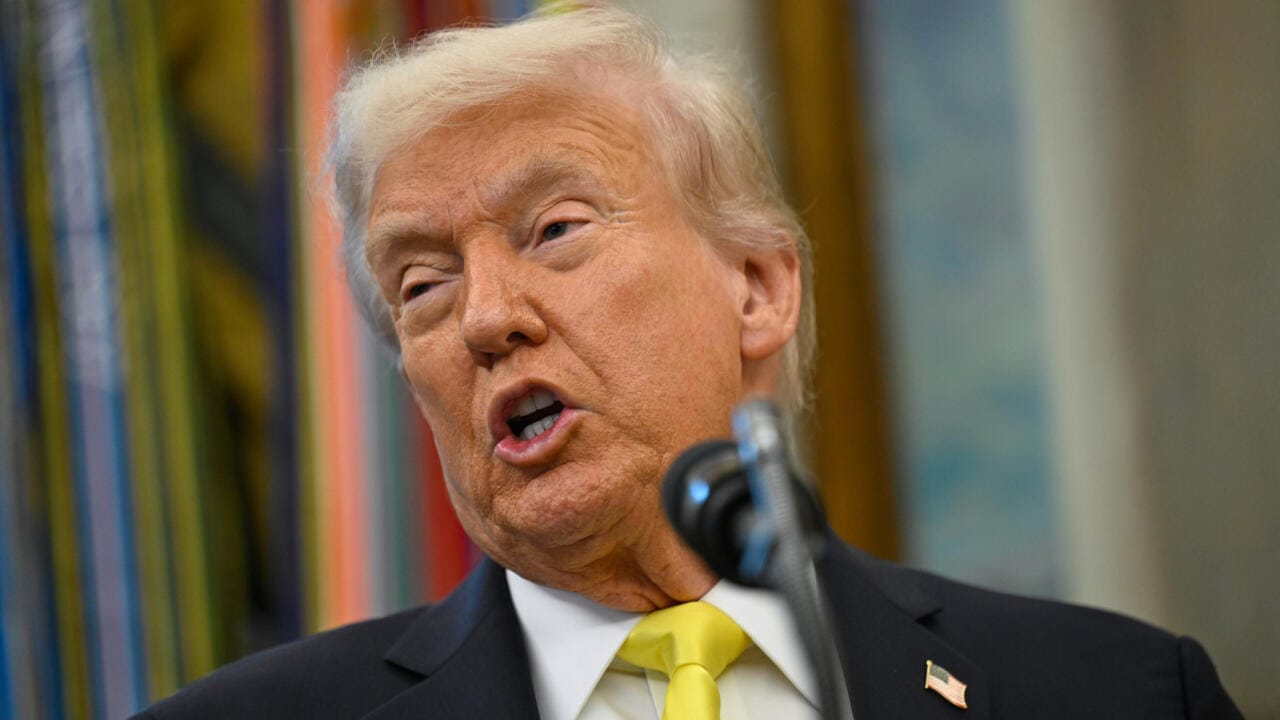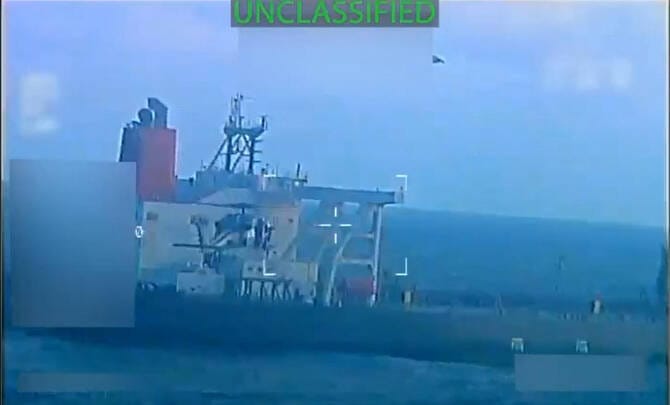Balochistan: A Victim of Colonial Agreements by Iran, Pakistan, and China
A Baloch National Perspective on Neo-Colonialism and National Resistance

Balochistan, a land with its own distinct history, culture, and identity, is currently divided among three states: Iran, Pakistan, and Afghanistan. Each portion is subjected to varying degrees of political, military, and economic domination. Among these actors, China has emerged as a global power with imperial ambitions, becoming a key player in the exploitation of Balochistan’s resources through long-term agreements with both Iran and Pakistan. This article, from a critical Baloch national viewpoint, examines the colonial dimensions of these collaborations and highlights the role of national resistance in countering this process. Ultimately, it stresses the Baloch people’s political demand for the annulment of these colonial treaties following the collapse of the Islamic Republic of Iran and Pakistan.
Balochistan: A Land Divided, A Nation United
The historic territory of Balochistan was divided in the 19th century as a result of British colonial policies (Baloch, 2020). Its eastern part now lies in Pakistan (Eastern Balochistan), the western part in Iran (Western Balochistan or Sistan and Baluchestan), and a smaller section in southern Afghanistan. Despite this geopolitical fragmentation, the Baloch nation continues to share a common historical, linguistic, cultural, and national identity.
In recent years, the occupying governments—particularly Iran and Pakistan—have partnered with China to initiate development projects in Balochistan without the consent or participation of the Baloch people. These projects are designed to exploit the region’s natural resources, coasts, ports, mines, and geopolitical position (Mir, 2022).
China: A New Partner in the Neo-Colonization of Balochistan
The People’s Republic of China, through its massive “Belt and Road Initiative,” aims to dominate economic routes across Asia, Africa, and Europe. Key to this vision are the ports of Gwadar in Eastern Balochistan (Pakistan) and Chabahar and Jask in Western Balochistan (Iran) (Small, 2015).
Through substantial investments in ports, highways, mining, and energy projects, China has established a strong presence on both sides of Balochistan. The 25-year economic deal with the Islamic Republic of Iran and the China–Pakistan Economic Corridor (CPEC) were both signed without any consultation with the Baloch people. These agreements have effectively allowed China to become a central actor in the systematic plundering of Balochistan’s resources (International Crisis Group, 2018).
Balochistan: A Battlefield of Terrorist States and Global Powers
Both Iran and Pakistan have employed militarized and repressive strategies against the Baloch nation. Thousands of Baloch individuals have been killed, imprisoned, or forcibly disappeared in both countries for asserting their right to self-determination. Reports by Amnesty International document cases of extrajudicial executions, enforced disappearances, media suppression, and structural discrimination against Baloch communities (Amnesty International, 2022; Human Rights Watch, 2023).
China’s agreements with these regimes do not signify development but instead reflect its alignment with states that systematically violate human rights and the collective rights of the Baloch nation. Rather than acting as a partner in sustainable development, China has chosen to sustain internal colonialism. This approach is not only ethically indefensible but also strategically flawed, as Balochistan will not remain forever under the control of these two artificial, terrorist regimes. The freedom of the Baloch nation is near.
The Baloch Nation: Excluded from Decision-Making, Deprived of Its Resources
A fundamental principle of human rights and international justice is the right of indigenous peoples to participate in decisions affecting their natural resources and destiny (UN Declaration on the Rights of Indigenous Peoples, 2007). Yet in Balochistan, the Baloch nation has no voice or stake in economic contracts, resource extraction, or development planning.
Control over Balochistan’s mineral, fisheries, gas, oil, coastlines, and ports lies largely in the hands of foreign corporations, Iran’s Islamic Revolutionary Guard Corps, and Pakistan’s military. In contrast, the Baloch population suffers from extreme poverty, unemployment, illiteracy, and systematic discrimination (UNDP Iran, 2023; HRCP Pakistan, 2022).
The Baloch Resistance: A Legitimate Response to Neo-Colonialism
In response to this unjust situation, the Baloch nation has organized various forms of resistance:
• Popular and civil protests
• Cultural, media, and international advocacy
• Organized political and even armed resistance
These acts of defiance reflect the Baloch people’s awareness and determination to defend their land, identity, and right to self-determination. Development without national participation is merely a tool for looting, not progress.
The Baloch nation has declared that following the collapse of the Islamic Republic of Iran and the weakening of Pakistan’s central structure, all colonial agreements with foreign powers—including China—will be annulled. These agreements are devoid of political, moral, and popular legitimacy.
A Just Solution for the Future of Balochistan
The current crisis in Balochistan cannot be resolved through continued repression by Iran and Pakistan, nor through China’s deceptive development deals. The only path forward lies in recognizing the Baloch nation’s right to self-determination.
The Baloch nation’s proposals for a just future:
• Genuine participation of the Baloch people in managing their natural resources
• Demilitarization and removal of security forces from Balochistan
• Official recognition of the Baloch people’s right to self-determination
• Revocation of all colonial agreements lacking Baloch consent
• Establishment of autonomous political structures or full independence through a free and transparent referendum under international supervision
Until these demands are fulfilled, the Baloch resistance will persist—until freedom, justice, and independence prevail across the land of Balochistan, and the occupiers and their partners are driven out.
References
• Amnesty International. (2022). Iran and Pakistan: Ethnic Discrimination and State Violence Against the Baloch.
• Human Rights Watch. (2023). Pakistan’s Missing Persons and Baloch Activist Crackdown.
• International Crisis Group. (2018). China’s Belt and Road Initiative in Pakistan: CPEC’s Implications for Balochistan.
• Small, A. (2015). The China-Pakistan Axis: Asia’s New Geopolitics. Oxford University Press.
• UNDP Iran. (2023). Provincial Human Development Index Report.
• UN Declaration on the Rights of Indigenous Peoples. (2007).
• Human Rights Commission of Pakistan (HRCP). (2022). State of Human Rights in Balochistan.
• Mir, H. (2022). Exploitation of Baloch Resources in the Name of Development. Balochistan Times.
• Baloch, M. (2020). Colonial Legacy and the Partition of Balochistan. Journal of Decolonial Studies.
Links
• Partybns Telegram Program and Charter
• Partybns Official Website
• Partybns Telegram Channel
• Partybns Instagram
• Sahab Coordination Organization Telegram
• Rasad Balochistan News Agency Telegram
• Balochistan Human Rights Campaign Website
Author:
Mohim Baloch (Sarkhosh)






